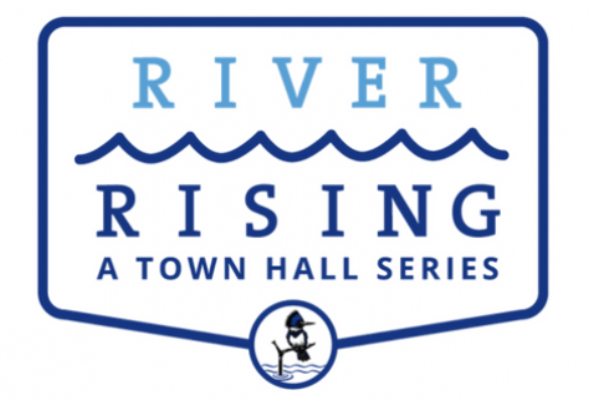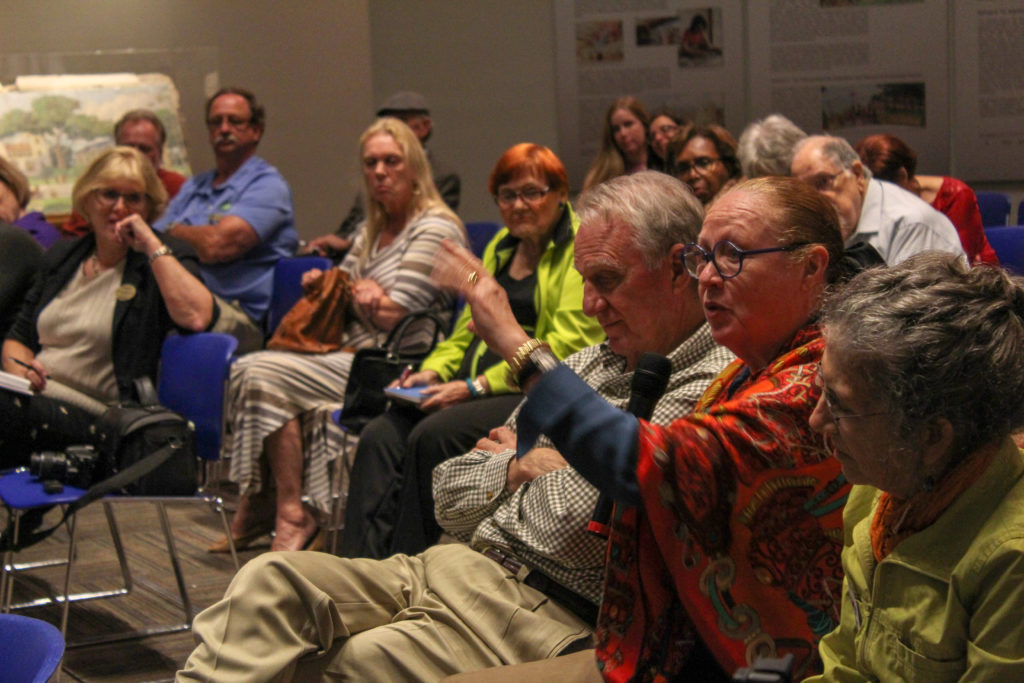
In our troubled era of trust and communication, St. Johns Riverkeeper is riding the tide of facts and storytelling for the betterment of its community and watershed. And whether this fundamental, yet often overlooked exercise of simply confronting difficult issues with open dialogue should be replicated elsewhere by other Waterkeepers, or if it is uniquely impactful in a state that once famously (and recently) had its leaders stop using the phrase “climate change,” it’s working in the greater St. Johns River watershed.
Based in the upper northeast portion of Florida in Jacksonville, St. Johns Riverkeeper doesn’t have the luxury of not thinking about a changing climate and what that means for the river city and surrounding coastal communities. From direct impacts from storms to a seemingly always rising river, St. Johns Riverkeeper talks about and urges action on climate change—as a leading voice in a community still recovering from the destruction of 2017’s Hurricane Irma, it certainly can’t ignore it.
Was Jacksonville ready for a Category 1 storm that caused a 150-year flood to send salty seawater gushing into streets and neighborhoods? Is Jacksonville’s outdated infrastructure ready for the next storm? And can Florida’s longest river continue to sustain dredging that, for decades, has resulted in higher water levels, thus greater storm surges and flood risks?

These are questions St. Johns Riverkeeper is posing in community forums as part of their “River Rising: Town Hall Series,” the second “season” of which just kicked off November 1. Riverkeeper Lisa Rinaman says, “The goal is to bring citizens together so we can talk about long-term strategies to make ourselves more resilient as a city and as a community.”
These free events started in the summer of 2018 in response to Hurricane Irma, which provided a devastating, albeit much-needed, wake-up call to many Florida communities. The meetings have featured scientists and other experts, including Rinaman, and include an open dialogue Q&A with St. Johns River community members.
“It is critical to have a community conversation about these issues and to take action now,” states Rinaman. “Otherwise, we will become even more vulnerable as waters continue to rise, flooding becomes more frequent, public infrastructure fails, and our river is further degraded by more sewage and pollution. “
The town hall series has also proven to be a jumping off point for St. Johns Riverkeeper to call on elected officials to take action. In early October, the St. Johns Riverkeeper Water Policy Group sent a letter to Jacksonville Mayor Lenny Curry requesting a meeting to discuss the outcome of the series and the City’s plans to address the impacts of rising waters.
“We have now hosted nearly 600 participants at eight town hall meetings, with an upcoming town hall scheduled for November 1 in San Marco,” the group wrote. “Those who attend come to discuss and learn about the impacts of dredging and rising waters, but more importantly, they are anxious for answers about how Jacksonville has learned from past mistakes and is preparing to be more resilient in the future.”
The River Rising Town Hall series continues in January in Neptune Beach (details here) and will likely continue until St. Johns Riverkeeper feels that watershed communities are prepared for what’s ahead. As the old adage says, “knowledge, is power,” and St. Johns Riverkeeper is empowering an important river community—a community that not only speaks about climate change, but acts.